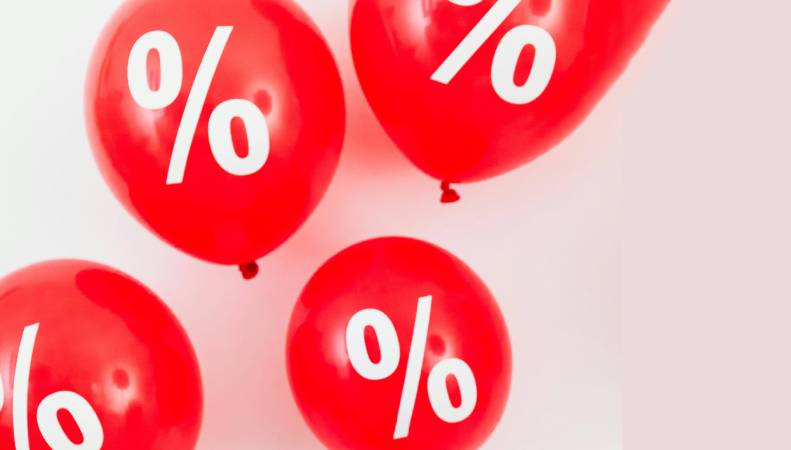By using our website, you agree to the use of cookies as described in our Cookie Policy
Blog
Weekly Market Commentary
The Markets
Vaccine can be a powerful word. It’s worth 14 points in Scrabble (42 on a triple word square) and, last week, it was worth a whole lot more than that to financial markets.
On Monday, a pharmaceutical company and a biotech company announced preliminary trials of their vaccine show it may be 90 percent effective, reported Financial Times. The revelation conjured tantalizing visions of a future in which virus precautions are unnecessary and life returns to normal.
Around the world, pandemic-fatigued populations cheered and markets rallied. CNBC reported:
“The Dow was up nearly 3 percent, while Nasdaq fell 1.5 as laggard sectors like energy and financials outperformed tech. Stay-at-home plays…were sharply lower, but airlines rallied 16 percent. The S&P energy sector, still down 45 percent this year, was up more than 14 percent, and financials were up 8 percent.”
As demand for risk assets, like stocks, increased so did bond yields. In the United States, the yield on 10-year Treasuries rose to 0.97 percent. Rising long-term interest rates caused analysts to speculate about the possibility of inflation and stagflation (rising prices during a period of weak economic growth), reported Barron’s.
Mid-week, enthusiasm moderated. While investors remained confident a vaccine could lead to economic recovery over the longer term, concerns about the shorter-term took center stage. Markets retreated a bit as investors mulled:
- Weaker-than-expected consumer sentiment. In November, consumer sentiment has declined by 5.9 percent month-to-month and it was off by more than 20 percent year-to-year. Sentiment is an important measure because consumer spending is a major driver of U.S. economic growth. When sentiment declines, people may spend less.
- A surge in coronavirus cases. The number of daily cases has increased by more than 70 percent nationwide since the beginning of November. Eighteen states are at risk of reaching full hospital capacity, reported NPR.
- New pandemic restrictions. As holidays approach, many cities and states introduced or re-introduced restrictions intended to slow the spread of the virus. The measures could slow economic recovery.
- No progress on new stimulus. If good news about a vaccine throttles political appetite for additional stimulus, small business owners could be in trouble. In 2019, small businesses employed almost 60 million people – 47 percent of working Americans. A new Goldman Sachs survey found “…more than half of small business owners (52 percent) have stopped paying themselves in a bid to keep their businesses afloat and four in 10 (42 percent) already have begun laying off employees or cutting worker pay,” reported Axios.
Market volatility is likely to persist. Stay calm and don’t let short-term events jar you from your long-term financial goals.
| Data as of 11/13/20 | 1- Week | Y-T-D | 1-Year | 3 -Year | 5-Year | 10- Year |
| Standard & Poor's 500 (Domestic Stocks) | 2.2% | 11.0% | 15.9% | 11.5% | 12.1% | 11.5% |
| Dow Jones Global ex-U.S. | 2.7 | 0.9 | 5.2 | 1.1 | 4.8 | 2.2 |
| 10-year Treasury Note (Yield Only) | 0.9 | NA | 1.9 | 2.4 | 2.3 | 2.9 |
| Gold (per ounce) | -2.6 | 24.2 | 29.3 | 14.0 | 11.8 | 3.3 |
| Bloomberg Commodity Index | 1.3 | -8.9 | -6.6 | -5.4 | -2.2 | -6.7 |
S&P 500, Dow Jones Global ex-US, Gold, Bloomberg Commodity Index returns exclude reinvested dividends (gold does not pay a dividend) and the three-, five-, and 10-year returns are annualized; and the 10-year Treasury Note is simply the yield at the close of the day on each of the historical time periods.
Sources: Yahoo! Finance, Market Watch, dj indexes.com, London Bullion Market Association.
Past performance is no guarantee of future results. Indices are unmanaged and cannot be invested into directly. N/A means not applicable.
is value investing making a comeback? In 1949, Benjamin Graham, who is known as the father of value investing, penned The Intelligent Investor. His book offered insights about how to reduce the risk of loss when investing in stocks.
Graham encouraged investors to understand a stock is more than a ticker symbol. Stockholders are owners of businesses that have underlying value, and that value does not depend on its stock price. He believed investors should purchase shares when a stock is trading below the underlying worth of the business. Value investing is all about looking for bargains, for diamonds in the rough.
Value investing is often discussed in tandem with growth investing.
Growth investors are less concerned about share price and more concerned about above-average earnings growth. They invest in companies that are expected to grow quickly and deliver impressive returns as a result of that growth.
Value investing has had a rough decade. Despite a long history of outperformance – from 1983 through 2019, the FTSE Russell 1000 Value Index outperformed the Russell 1000 Growth Index – value has under performed since the 2008 financial crisis.
Last week, there was a move from growth-oriented stocks into value-oriented stocks. The Economist explained, “In the past week or so, fortunes have reversed. Technology stocks have sold off. Value stocks have rallied, as prospects for a coronavirus vaccine raise hopes of a quick return to a normal economy. This might be the start of a long-heralded rotation from overpriced tech to far cheaper cyclicals – stocks that do well in a strong economy. Perhaps value is back.”
Time will tell.
Weekly Focus – Think About It
“The vaccine news airlines have been waiting for arrived this week, raising hopes for a recovery in passenger air travel – but only if the crippled industry can muster the resources to deliver billions of life-saving doses to the world…Just providing a single dose to the world's 7.8 billion people would fill 8,000 747 freighter planes…”
--Joann Muller, Axios News, November 13, 2020
Best regards,
JMS Wealth
P.S. Please feel free to forward this commentary to family, friends, or colleagues. If you would like us to add them to the list, please reply to this email with their email address and we will ask for their permission to be added.
Sources:
https://www.wordunscrambler.net/scrabble-word-meaning/vaccine
https://www.ft.com/content/48400214-6caf-4d88-b145-75a3cead2b23 (or go to https://peakcontent.s3-us-west-2.amazonaws.com/+Peak+Commentary/11-16-20_FinancialTimes-COVID_Vaccine_Breakthrough_Fuels_Broad_Global_Equity_Rally-Footnote_2.pdf)
https://www.cnbc.com/2020/11/09/us-bonds-treasury-yields-fall-following-bidens-election-win.html
https://www.cnbc.com/2020/11/12/stock-market-futures-open-to-close-news.html
https://www.barrons.com/articles/long-term-interest-rates-are-rising-could-that-spell-stagflation-51605315647 (or go to https://peakcontent.s3-us-west-2.amazonaws.com/+Peak+Commentary/11-16-20_Barrons-Heres_What_the_Rise_in_Long-Term_Interest_Rates_Means-Footnote_6.pdf)
https://www.investopedia.com/terms/c/consumer-sentiment.asp
https://cdn.advocacy.sba.gov/wp-content/uploads/2019/04/23142719/2019-Small-Business-Profiles-US.pdf
https://www.amazon.com/Intelligent-Investor-Collins-Business-Essentials-ebook/dp/B000FC12C8/ref=tmm_kin_swatch_0?_encoding=UTF8&qid=&sr= (or go to https://peakcontent.s3-us-west-2.amazonaws.com/+Peak+Commentary/11-16-20_Book_Excerpt-The_Intelligent_Investor-Footnote_12.pdf)
https://www.investopedia.com/terms/g/growthinvesting.asp
https://russellinvestments.com/us/blog/value-and-growth
https://www.economist.com/briefing/2020/11/12/value-investing-is-struggling-to-remain-relevant (or go to https://peakcontent.s3-us-west-2.amazonaws.com/+Peak+Commentary/11-16-20_TheEconomist-Value_Investing_is_Struggling_to_Remain_Relevant-Footnote_15.pdf)
The material in this work is proprietary to and copyrighted by Carson Coaching and is used by JMS Capital Group Wealth Services LLC with permission.| Government bonds and Treasury Bills are guaranteed by the U.S. government as to the timely payment of principal and interest and, if held to maturity, offer a fixed rate of return and fixed principal value. However, the value of fund shares is not guaranteed and will fluctuate. | Corporate bonds are considered higher risk than government bonds but normally offer a higher yield and are subject to market, interest rate and credit risk as well as additional risks based on the quality of issuer coupon rate, price, yield, maturity, and redemption features.| The Standard & Poor's 500 (S&P 500) is an unmanaged group of securities considered to be representative of the stock market in general. You cannot invest directly in this index.| All indexes referenced are unmanaged. Unmanaged index returns do not reflect fees, expenses, or sales charges. Index performance is not indicative of the performance of any investment.| The Dow Jones Global ex-U.S. Index covers approximately 95% of the market capitalization of the 45 developed and emerging countries included in the Index. | The 10-year Treasury Note represents debt owed by the United States Treasury to the public. Since the U.S. Government is seen as a risk-free borrower, investors use the 10-year Treasury Note as a benchmark for the long-term bond market.| Gold represents the afternoon gold price as reported by the London Bullion Market Association. The gold price is set twice daily by the London Gold Fixing Company at 10:30 and 15:00 and is expressed in U.S. dollars per fine troy ounce.| The Bloomberg Commodity Index is designed to be a highly liquid and diversified benchmark for the commodity futures market. The Index is composed of futures contracts on 19 physical commodities and was launched on July 14, 1998. | The Dow Jones Industrial Average (DJIA), commonly known as “The Dow,” is an index representing 30 stock of companies maintained and reviewed by the editors of The Wall Street Journal.| The NASDAQ Composite is an unmanaged index of securities traded on the NASDAQ system.| International investing involves special risks such as currency fluctuation and political instability and may not be suitable for all investors. These risks are often heightened for investments in emerging markets.| Yahoo! Finance is the source for any reference to the performance of an index between two specific periods.| Opinions expressed are subject to change without notice and are not intended as investment advice or to predict future performance.| Economic forecasts set forth may not develop as predicted and there can be no guarantee that strategies promoted will be successful.| Past performance does not guarantee future results. Investing involves risk, including loss of principal.| You cannot invest directly in an index.| Stock investing involves risk including loss of principal.| The foregoing information has been obtained from sources considered to be reliable, but we do not guarantee it is accurate or complete.| There is no guarantee a diversified portfolio will enhance overall returns or outperform a non-diversified portfolio. Diversification does not protect against market risk.| Asset allocation does not ensure a profit or protect against a loss.| Consult your financial professional before making any investment decision.
JMS Capital Group Wealth Services LLC
417 Thorn Street, Suite 300 | Sewickley, PA | 15143 | 412‐415‐1177 | jmscapitalgroup.com
An SEC‐registered investment advisor.
‹ Back








